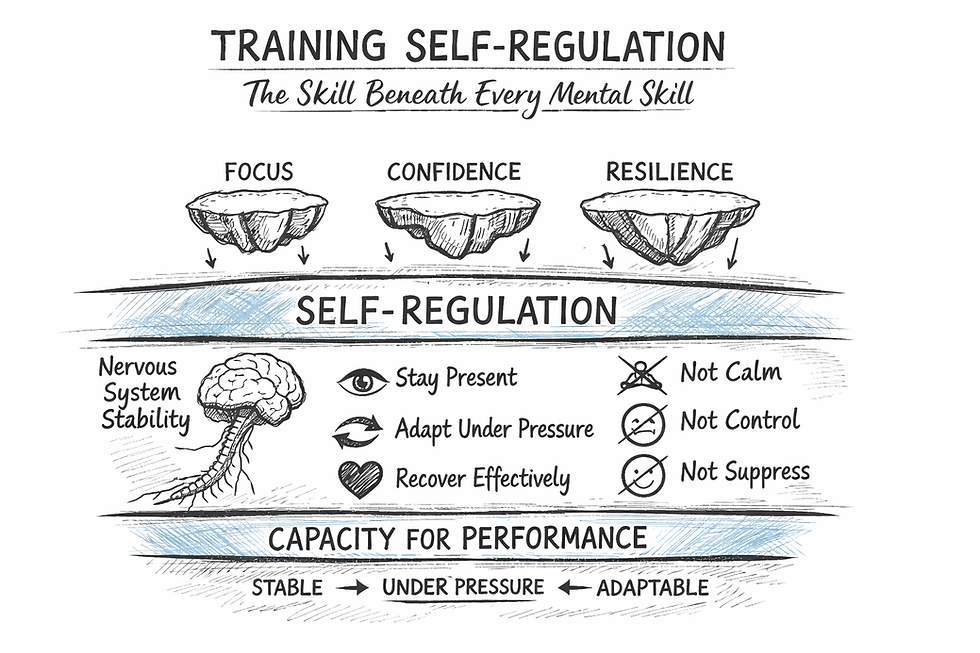3 WAYS TO FRONT LOAD YOUR MENTAL SKILLS
- Kate Allgood
- Mar 30, 2023
- 3 min read
Updated: Dec 18, 2023
#1 Train your attention
Your attentional skill set is at the core of all your other mental skills and mindset. It impacts how confident you are, how well you respond to mistakes and your overall sense of accomplishment. However, often this skill set is not purposefully trained. In a critical moment, especially one with pressure, you need your attentional skill set to be on point if you want to make the most of it. How you train your attention will determine what happens. As I have mentioned in many other posts, mindfulness meditation is one of the best ways to train attention. Athletes often don't do it, sighting needing more time. One way to change this is to meditate instead of scrolling through social media. If you look at how many minutes or hours you sit scrolling through your phone, take some of that time and front load the skill of attention.

#2 Practice focusing through distractions
This is one of the mental skills that Tiger Woods front-loaded, starting at a very young age. His dad, Earl, would throw a ball in his line of sight while setting up for a putt or jingle change in his pocket. It created the environment for Tiger to learn to focus through the distractions he would need to deal with as he got older and in bigger tournaments. This has allowed him to thrive in some of the biggest moments of his career.
#3 Find value beyond your role
One of the things that will be inevitable as an athlete is at some point, your role will change. It might mean the role you play on a team or your sport's role in your life and your relationship with it. If you wait for the role to change to develop the skills to deal with it, it will be an uphill climb. So it is important to front-load the necessary skills your will need for when this change occurs. This can be seen through finding the value you bring beyond your current role or beyond being an athlete. Maybe you find value in the process by focusing on helping others become better and improve. This is something that, no matter your role, you can always look to do.
Don't wait to need specific mental skills to develop them. Get ahead of it, and focus on developing the skills you need in the future now. If you want more help developing your mental game, check out my most recent book, The Athlete Within, to learn how to develop the mental game needed to succeed.
To your success,
Kate
About: Kate Allgood is trained in the field of applied sport psychology. She holds two Masters degrees in psychology where she graduated with distinction. She has spent the past 14 years working one on one with high school, college, Olympic, and professional athletes to help them with their mindset, mental performance and mental skills training. Kate has also been a consultant for professional teams, including the Anaheim Ducks primary minor league affiliate the San Diego Gulls, to help the team and players develop their mental game. It is important to note that while Kate has graduate school training in applied sport psychology and general psychology, she does not diagnose or treat clinical disorders, and is not a licensed psychologist.
**The information provided is not to dispense medical advice or prescribe the use of any technique, either directly or indirectly, as a form of treatment for physical, emotional, or medical problems, without the advice of a physician. The information provided is only to offer information of a general nature to help you in your quest for high performance. If you know or suspect you have a health problem, it is recommended you seek your physician's advice.



Comments